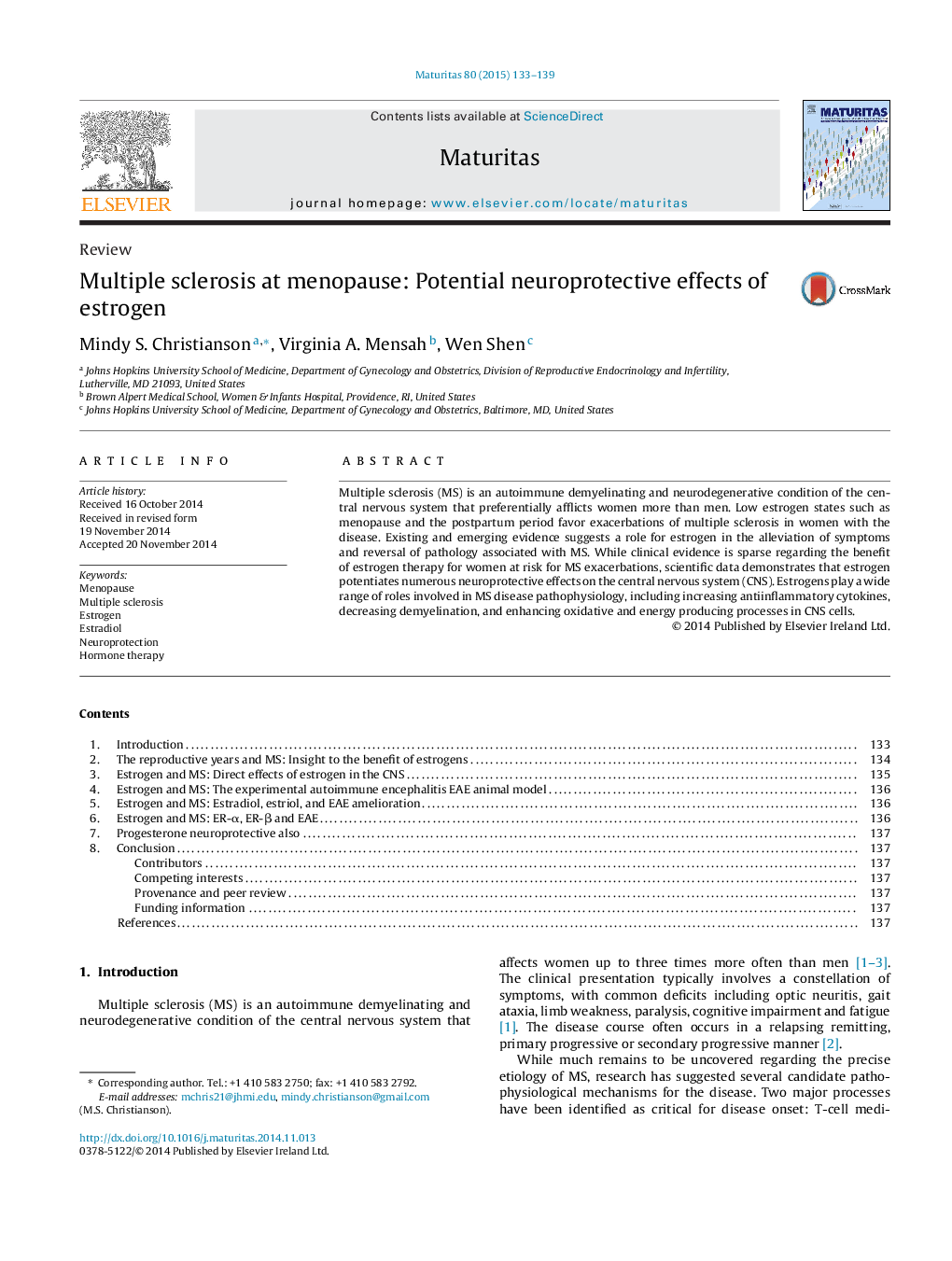| Article ID | Journal | Published Year | Pages | File Type |
|---|---|---|---|---|
| 1917156 | Maturitas | 2015 | 7 Pages |
•Emerging evidence suggests a role for sex steroid hormones, specifically estrogen, in the alleviation of symptoms and reversal of pathology associated with MS.•Low estrogen states, such as those observed during the postpartum period and during menopause, potentially result in exacerbations of symptoms in women affected by MS.•Estrogen can directly affect neurons as well as other support cells in the CNS.•Evidence of the molecular and cellular benefits of estrogen treatment also has been demonstrated in the experimental autoimmune encephalitis mouse model.
Multiple sclerosis (MS) is an autoimmune demyelinating and neurodegenerative condition of the central nervous system that preferentially afflicts women more than men. Low estrogen states such as menopause and the postpartum period favor exacerbations of multiple sclerosis in women with the disease. Existing and emerging evidence suggests a role for estrogen in the alleviation of symptoms and reversal of pathology associated with MS. While clinical evidence is sparse regarding the benefit of estrogen therapy for women at risk for MS exacerbations, scientific data demonstrates that estrogen potentiates numerous neuroprotective effects on the central nervous system (CNS). Estrogens play a wide range of roles involved in MS disease pathophysiology, including increasing antiinflammatory cytokines, decreasing demyelination, and enhancing oxidative and energy producing processes in CNS cells.
